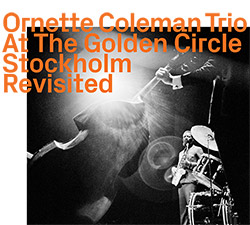
Reissuing and remastering both volumes from saxophonist, trumpeter and violinist Ornette Coleman's 1966 Blue Note album of his 1965 performance at the Golden Circle in Stockholm, Sweden in a trio with double bassist David Izenzon and drummer Charles Moffett, two days of exceptional concerts and the first example of Ornette's violin playing on any recording.
In Stock
Quantity in Basket: None
Log In to use our Wish List
Shipping Weight: 3.00 units
EU & UK Customers:
Discogs.com can handle your VAT payments
So please order through Discogs
Sample The Album:
Ornette Coleman-alto saxophone, trumpet, violin
David Izenzon-double bass
Charles Moffett-drums
Click an artist name above to see in-stock items for that artist.
UPC: 752156116325
Label: ezz-thetics by Hat Hut Records Ltd
Catalog ID: ezz-thetics 1163
Squidco Product Code: 34027
Format: CD
Condition: New
Released: 2023
Country: Switzerland
Packaging: Cardboard Gatefold
Recorded live at the Golden Circle, in Stockholm, Sweden, on December 3rd and 4th, 1965.
At The "Golden Circle" Stockholm Volume 1 originally issued in 1966 as a vinyl LP on the Blue Note label with catalog code BLP 4224.
At The "Golden Circle" Stockholm Volume 2 originally issued in 1966 as a vinyl LP on the Blue Note label with catalog code BLP 84225.
"For the followers of Ornette Coleman's music, 1963 and 1964 were the lost years. His final session for Atlantic Records, Ornette on Tenor, was in March 1961, and though he played sporadic club dates in '62, his self-produced Town Hall concert in December was to be his last significant appearance until he accepted a Village Vanguard gig in January 1965. The reasons for this hiatus, apparently, were personal, economic, philosophical, pragmatic, and artistic, all at the same time to varying degrees. But it would be wrong to assume that this was an idle or unproductive period in his life - in fact, to place into context the music he made on his return, and specifically this eloquent recording from Stockholm, it's necessary to consider some of the factors that affected the changes in his music.
One such vivid change relates directly to Coleman's collaborators, and the trio format which he embraced initially in late '62, in large part due to the unavailability of his previous partners. His trumpet alter-ego, Don Cherry, spent those three years in intense explorations with Sonny Rollins, the New York Contemporary Five, and Albert Ayler. Bobby Bradford, Ornette's other brassman of choice, stayed in California where jobs were more frequent. Bassist Scott La Faro, who had joined Ornette for the Double Quartet's Free Jazz in December 1960 and the first of the quartet sessions in 1961, continued to work with pianist Bill Evans until his fatal car crash in July, and his replacement, Jimmy Garrison, had an emotionally-tinged musical disagreement with Ornette onstage at the Five Spot and chose instead to break new ground with John Coltrane. (Charlie Haden was plagued by personal demons during much of this time, living in California.) Job insecurity also induced Billy Higgins and Ed Blackwell to look elsewhere. Thus the classically-trained bassist David Izenzon and Coleman's Ft. Worth high school drummer Charles Moffett remained from the quartet that originated early in '62.
It's worth trying to fathom Ornette's own changing perspective over the "lost" time. Certainly, his development during this period of an idiosyncratic, creative approach to the trumpet and violin provided him new colors, textures, and improvisatory concepts to work with. As counterpoint, his involvement with so-called "classical" composition increased as well. Though John Litweiler related that Ornette said he had been "trying to write classical music since 1950," the first substantial fruit of such labors - perhaps also inspired by his participation in Gunther Schuller's scores for Jazz Abstractions - arrived in his string quartet "Dedication to Poets and Writers" performed and recorded at Town Hall. In 1963 his "City Minds and Country Hearts" was played in concert by avant-garde pianist David Tudor and cellist Charlotte Moorman. By 1965, his orchestral interludes were part of the "Chappaqua Suite," and the wind quintet "Forms and Sounds" was composed for his appearance at the Croydon concert outside of London. (Of course, he continued to compose in this idiom after 1965.) Devising alternative structural and interactive components like these would affect the nature of the emerging improvising trio.
The specific talents of Izenzon on bass and drummer Moffett in the trio format introduced a broad new range of group dynamics and harmonic and rhythmic relationships, based upon Ornette's desire for spontaneous, individual responses to details of phrasing and form within each open arrangement. But an even greater sense of freedom and intuitive elaboration from that in the '62 Town Hall concert may be heard here from the Golden Circle, as they separate themselves further from conventional jazz procedures. On the opening "Faces and Places," direct causal responsibilities between the instruments are removed, implying a spatial, rather than supportive, perspective. More melodic than harmonic, Izenzon's bass closely shadows Coleman's alto narrative on "Dee Dee," and he truly accompanies the alto on its journey through "Morning Song." Moffett's percussion is often ornamental and divided into episodes of impulse, as on "Dawn," while the bass contrasts the alto by alternating between arco flourishes and a somber pizzicato line.
As the first example of Ornette's violin playing to be released on record, "Snowflakes and Sunshine" initiated the controversy over his technique and conception. Some commentators claimed he was simply inept, others felt he was attempting to follow the contours of his alto sax phrasing, or imitating the indeterminate qualities applied by John Cage. But in this context, instead of relating the instrument - and its corresponding technique - to its classical usage, there is a stronger connection to the varied loose-wristed, modal and microtonal styles of folk fiddling: Appalachian, Irish, Balkan, Carnatic (one wonders if he had an opportunity to hear the distinctive Swedish fiddlers). There's more than a hint of hoedown feeling in the first statement here, and the juxtaposition of recognizably jazzy trumpet with the folk-abstracted, kinetic gestures of the violin offers a clue to Ornette's intentions.
These performances from the Golden Circle capture this multifaceted, innovative trio at a creative peak, a time when Ornette was finding new sources of inspiration and new modes of expression."-Art Lange, Chicago, August 2023

The Squid's Ear!
Artist Biographies
• Show Bio for Ornette Coleman "Randolph Denard Ornette Coleman (March 9, 1930 - June 11, 2015) was an American jazz saxophonist, violinist, trumpeter, and composer known as a principal founder of the free jazz genre, a term derived from his 1960 album Free Jazz: A Collective Improvisation. His pioneering performances often abandoned the chordal and harmony-based structure found in bebop, instead emphasizing a jarring and avant-garde approach to improvisation. Born in Fort Worth, Texas, Coleman began his musical career playing in local R&B and bebop groups, and eventually formed his own group in Los Angeles featuring members such as Ed Blackwell, Don Cherry, Charlie Haden, and Billy Higgins. In 1959, he released the controversial album The Shape of Jazz to Come and began a long residency at the Five Spot jazz club in New York City. His 1960 album Free Jazz would profoundly influence the direction of jazz in that decade. Beginning in the mid-1970s, Coleman formed the group Prime Time and explored funk and his concept of Harmolodic music. Coleman's "Broadway Blues" and "Lonely Woman" became genre standards and are cited as important early works in free jazz. His album Sound Grammar received the 2007 Pulitzer Prize for Music. AllMusic called him "one of the most important (and controversial) innovators of the jazz avant-garde"." ^ Hide Bio for Ornette Coleman • Show Bio for David Izenzon "David Izenzon (May 17, 1932 Š October 8, 1979) was an American jazz double bassist. Izenzon was born in Pittsburgh, Pennsylvania, United States. He graduated from the Carnegie Institute of Technology, now Carnegie Mellon University, and later received a master's degree from the Manhattan School of Music. Izenzon began playing double bass at the age of twenty-four. He played in his hometown before moving to New York City in 1961 where he played with Paul Bley, Archie Shepp, Sonny Rollins, and Bill Dixon. He is best known for his association with Ornette Coleman, which began in October 1961. He played in Coleman's Town Hall, 1962 concert and played with him frequently from 1965 to 1968, often in a trio format with drummer Charles Moffett. During this time, Izenzon also recorded with Harold McNair and Yoko Ono. From 1968 to 1971, he taught music history at Bronx Community College and played with Perry Robinson and Paul Motian, but reduced his time in music in 1972 when his son became ill. In 1973 Izenzon received a Ph.D. in psychotherapy from Northwestern University. The following year, he co-founded Potsmokers Anonymous with his wife, Pearl. In 1975 he composed a jazz opera entitled How Music Can Save the World, dedicated to those who helped his son recover. From 1977, Izenzon worked again with Coleman and Motian, up until his death in 1979. Izenzon had a heart attack and was dead on arrival at Bellevue Hospital in New York City. He was survived by his wife and two sons. " ^ Hide Bio for David Izenzon • Show Bio for Charles Moffett "Charles Moffett (September 6, 1929 - February 14, 1997) was an American free jazz drummer. Moffett was born in Fort Worth, Texas, where he attended I.M. Terrell High School with Ornette Coleman.: 27 Before switching to drums, Moffett began his musical career as a trumpeter. At age 13, he played trumpet with Jimmy Witherspoon, and later formed a band, the Jam Jivers, with fellow students Coleman and Prince Lasha.: 30 After switching to drums, Moffett briefly performed with Little Richard. Moffett served in the United States Navy, after which he pursued boxing before studying music at Huston-Tillotson College in Austin. Moffett married in 1953 (Coleman was best man, and performed at the wedding),: 44 then began teaching music at a public school in Rosenberg, Texas In 1961, Moffett moved to New York City to work with Ornette Coleman, but the saxophonist soon went into a brief retirement period. Moffett worked with Sonny Rollins, appeared on Archie Shepp's album Four for Trane, and led a group that included Pharoah Sanders and Carla Bley. When Coleman returned to performing in 1964, he formed a trio with Moffett and bassist David Izenzon. Moffett also performed on vibraphone. Moffett began teaching music at New York Public Schools as a way to make ends meet when Coleman made only sporadic performances. Moffett taught at P.S. 58 (Carrol School) in Brooklyn and at P.S. 177 M (under the Manhattan Bridge and now defunct). He also taught at a Brooklyn High School. Moffett moved to Oakland, California, where he served as the city's music director, and was later the principal of the alternative Odyssey public school in Berkeley in the mid-1970s. The title of his first solo album The Gift is a reference to his love of teaching music. His then 7-year-old son Codaryl played drums on that album. Moffett later returned to Brooklyn, NY and taught at P.S. 142 Stranahan Junior High School (Closed in 2006) and at P.S. 58 Carroll School. His children are double bassist Charnett Moffett, drummer Codaryl "Cody" Moffett, vocalist Charisse Moffett, trumpeter Mondre Moffett, and saxophonist Charles Moffett, Jr." ^ Hide Bio for Charles Moffett
1/14/2026
Have a better biography or biography source? Please Contact Us so that we can update this biography.
1/14/2026
Have a better biography or biography source? Please Contact Us so that we can update this biography.
1/14/2026
Have a better biography or biography source? Please Contact Us so that we can update this biography.
Track Listing:
1. Faces And Places 11:17
2. European Echoes 7:22
3. Dee Dee 10:06
4. Dawn 8:01
5. Snowflakes And Sunshine 10:26
6. Morning Song 10:42
7. The Riddle 9:44
8. Antiques 12:20
Hat Art
Improvised Music
Jazz
Free Improvisation
NY Downtown & Metropolitan Jazz/Improv
Jazz Reissues
Trio Recordings
Search for other titles on the label:
ezz-thetics by Hat Hut Records Ltd.

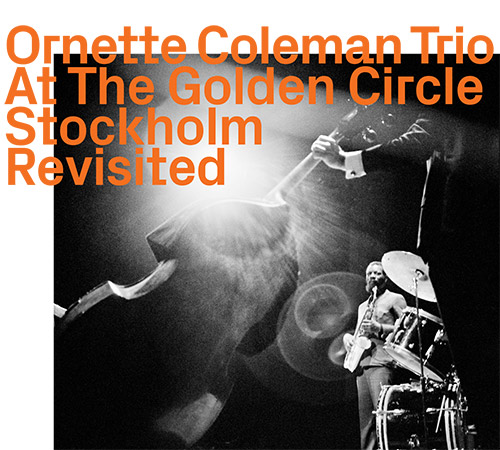

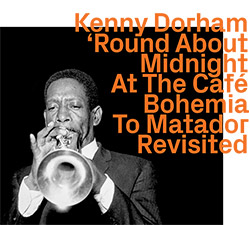

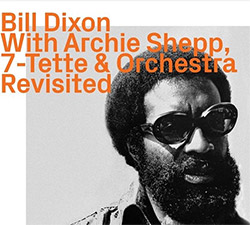
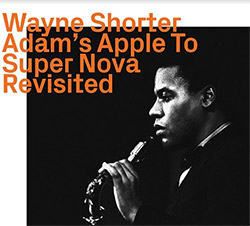
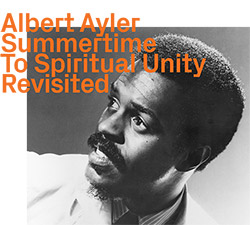
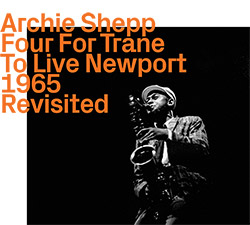
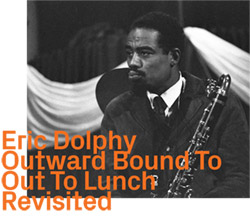
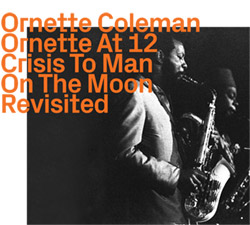

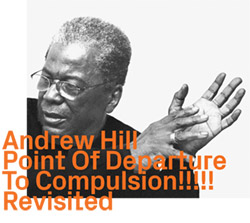
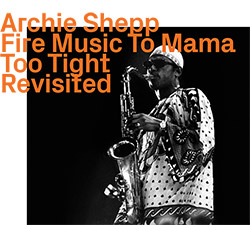


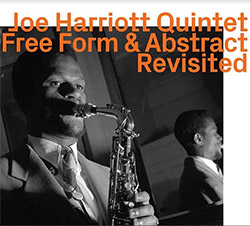
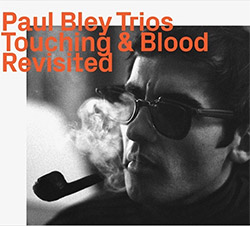

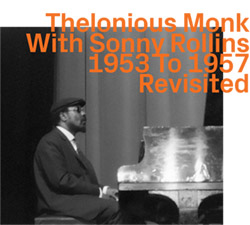
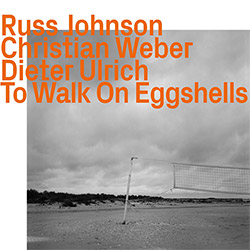





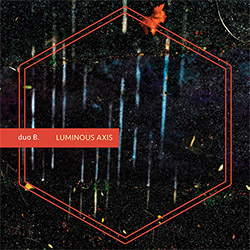
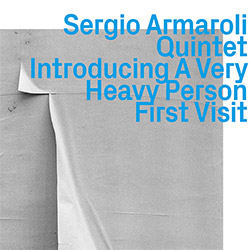



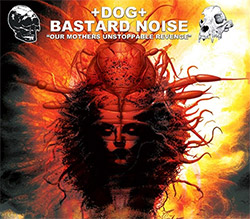



![Parker, Evan / Andrea Centazzo: Bullfighting On Ice! Live In Padova 1977 [VINYL]](https://www.teuthida.com/productImages/misc4/37064.jpg)
![Curran, Alvin / Andrea Centazzo / Evan Parker: Real Time [VINYL]](https://www.teuthida.com/productImages/misc4/37065.jpg)
![Curran, Alvin / Andrea Centazzo / Evan Parker: Real Time Two [VINYL]](https://www.teuthida.com/productImages/misc4/37066.jpg)

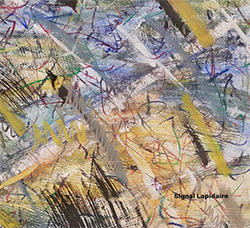

![Rodrigues, Ernesto / Jung-Jae Kim / Guilherme Rodrigues / Eric Bauer / Stephen Flinn: 5 In The Afternoon [2CDs]](https://www.teuthida.com/productImages/misc4/36957.jpg)

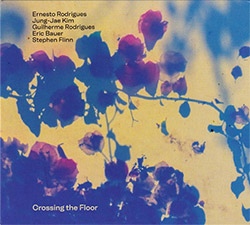





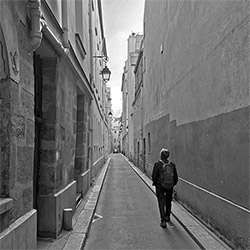
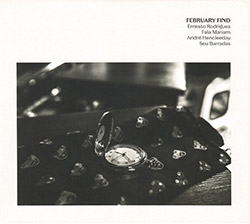




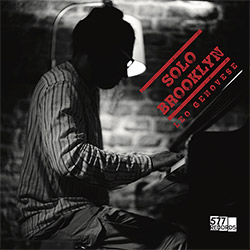
![Coley, Byron / Mats Gustafsson / Thurston Moore: Now Jazz Now: 100 Essential Free Jazz & Improvisation Recordings (1960-80) [BOOK]](https://www.teuthida.com/productImages/misc4/36932.jpg)
![Evans, Peter / Being & Becoming: Ars Ludricra [VINYL + DOWNLOAD]](https://www.teuthida.com/productImages/misc4/37026.jpg)
![HobbyHouse (Mia Dyberg / Axel Filip): HobbyHouse [CD + DOWNLOAD]](https://www.teuthida.com/productImages/misc4/36944.jpg)
![Mines, Kelsey / Erin Rogers: Scratching At The Surface [CD + DOWNLOAD]](https://www.teuthida.com/productImages/misc4/36945.jpg)
![Nebbia, Camila (feat/ Marilyn Crispell / Lesley Mok): A Reflection Distorts Over Water [CD + DOWNLOAD]](https://www.teuthida.com/productImages/misc4/36946.jpg)
![Vanheerentals, Adia: Taking Place [CD + DOWNLOAD]](https://www.teuthida.com/productImages/misc4/36947.jpg)
![Mines, Kelsey / Vinny Golia: Collusion and Collaboration [CD + DOWNLOAD]](https://www.teuthida.com/productImages/misc4/36948.jpg)
![Parkins, Zeena: Lament For The Maker [CD + DOWNLOAD]](https://www.teuthida.com/productImages/misc4/36949.jpg)
![Evans, Peter / Mike Pride : A Window, Basically [CD + DOWNLOAD]](https://www.teuthida.com/productImages/misc4/36950.jpg)
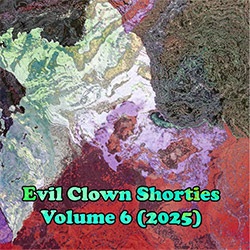
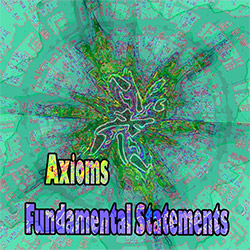

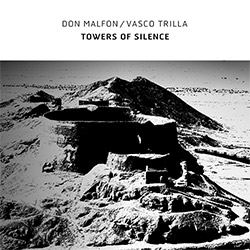
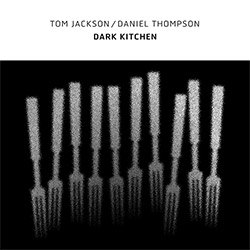

![Agnel, Sophie: Learning [VINYL]](https://www.teuthida.com/productImages/misc4/36841.jpg)
![Monaco, Amanda (w/ Michael Attias / Sean Conly / Satoshi Takeishi) : Deathblow [VINYL+ DOWNLOAD]](https://www.teuthida.com/productImages/misc4/36956.jpg)
![Belorukov, Ilia / Alex Riva: Wrestling For Futility [CASSETTE w/DOWNLOAD]](https://www.teuthida.com/productImages/misc4/36994.jpg)


![Genthon, Anouck / Lionel Marchetti: Suite Blanche [2 CDs]](https://www.teuthida.com/productImages/misc4/36642.jpg)
![Toeplitz, Kasper T.: Erosions Programmees [CD + BOOKLET]](https://www.teuthida.com/productImages/misc4/36639.jpg)
![Gate, The : Almost Live [CASSETTE + MAGAZINE]](https://www.teuthida.com/productImages/misc4/36836.jpg)






![A Magic Whistle: The Solar Cell [VINYL]](https://www.teuthida.com/productImages/misc4/36658.jpg)

![McGee, Hal: Columbus Expedition [Cassette w/ Download]](https://www.teuthida.com/productImages/misc4/36650.jpg)


![Jaeger, Kassel: Fernweh [VINYL 2 LPs]](https://www.teuthida.com/productImages/misc4/36541.jpg)





![+DOG+: The Light Of Our Lives [2 CDs]](https://www.teuthida.com/productImages/misc4/36009.jpg)


![Frey, Jurg : Composer, Alone [3 CDs]](https://www.teuthida.com/productImages/misc4/36927.jpg)








![Frey, Jurg with ensemble]h[iatus: Je Laisse A La Nuit Son Poids D](https://www.teuthida.com/productImages/misc4/36988.jpg)




![Pisaro-Liu, Michael: Within (2) / Appearance (2) [2 CDs]](https://www.teuthida.com/productImages/misc4/36831.jpg)










![Musicworks Magazine: #151 Summer 25 [MAGAZINE + CD]](https://www.teuthida.com/productImages/misc4/36559.jpg)

![Brown, Dan / Dan Reynolds: Live At The Grange Hall [unauthorized][CASSETTE]](https://www.teuthida.com/productImages/misc4/36245.jpg)



![Zorn, John: The Song of Songs [CD + CD BOOK]](https://www.teuthida.com/productImages/misc4/36923.jpg)

![Coultrain: Mundus [COLORED VINYL]](https://www.teuthida.com/productImages/misc4/33056.jpg)
![Hprizm: Signs Remixed [COLORED VINYL]](https://www.teuthida.com/productImages/misc4/30635.jpg)
![Halls Of the Machine: All Tribal Dignitaries [CASSETTE w/ DOWNLOAD]](https://www.teuthida.com/productImages/misc4/36134.jpg)



![Koenjihyakkei: Live at Club Goodman [2 CDs]](https://www.teuthida.com/productImages/misc4/36111.jpg)

![Sorry For Laughing (G. Whitlow / M. Bates / Dave-Id / E. Ka-Spel): Rain Flowers [2 CDS]](https://www.teuthida.com/productImages/misc4/35985.jpg)

![Rolando, Tommaso / Andy Moor : Biscotti [CASSETTE w/ DOWNLOADS]](https://www.teuthida.com/productImages/misc4/36106.jpg)


![Electric Bird Noise / Derek Roddy: 8-10-22 [CD EP]](https://www.teuthida.com/productImages/misc4/35970.jpg)








![Elephant9 : Mythical River [VINYL]](https://www.teuthida.com/productImages/misc4/34624.jpg)



![Elephant9 with Terje Rypdal: Catching Fire [VINYL 2 LPs]](https://www.teuthida.com/productImages/misc4/35355.jpg)
![Coley, Byron: Dating Tips for Touring Bands [VINYL]](https://www.teuthida.com/productImages/misc4/17906.jpg)

![Lost Kisses: My Life is Sad & Funny [DVD]](https://www.teuthida.com/productImages/misc4/lostKissesDVD.jpg)